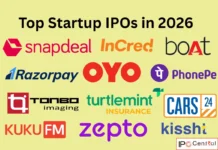Burger King India – one of the fastest growing QSR chains in India – has filed draft red herring prospectus (DRHP) with SEBI, seeking regulatory approvals for launching its IPO. As the national master franchisee of the Burger King brand in India, the company has exclusive rights to develop, establish, operate and franchise Burger King branded restaurants in India. Burger King India IPO will follow the well-laid path of equity offerings with share sale by promoters. Here are a few points you should know about the company:
Burger King India: Operational history of 5 yrs
Burger King is a well-known name globally. However, it is relatively a new entrant in the Indian market where its biggest competitor McDonald’s has been present for decades.
Burger King India started operations with the first restaurant in November 2014 and has now expanded presence to 202 restaurants, including 7 sub-franchised Burger King Restaurants, across 16 states and union territories and 47 cities across India. The number further increased to 216 Company-owned Burger King Restaurants and 8 Sub-Franchised Burger King Restaurants as of 2 November 2019.
Read Also: Biocon Biologics IPO in works, Kiran Mazumdar-Shaw hints
Burger King IPO: Master franchisee restrictions and obligations
Burger King India’s master franchise and development agreement is valid until 31 December 2039. This gives a long runway to the company but at the same time, it places several obligations.
For example, the agreement requires the company to develop and open at least 700 restaurants by 21 December 2025. This is quite steep considering that only 222 restaurants have been opened in the 5 years so far. Failing to achieve the target can result in termination of the development rights and the master franchise and development agreement.
As the master franchise holder, Burger King India can appoint sub-franchisee but at any time, the number of company-owned Burger King restaurants cannot drop below 60% of the total number of Burger King restaurants.
Read Also: IPO Flashback 2019: Best and worst of the year
Burger King India IPO: Financial performance
As is in the case of well-known brands, topline is directly a function of the number of outlets. With the expansion in its retail presence in recent years, Burger King India has posted higher revenues in each of the last three years.
On the profitability front, the company is still in red. Nevertheless, considering its limited operating history of just 5 years, it is not a bad show as the company is quite close to achieving profitability. Hopefully, it may show profitable operations in the latest quarter by the time it gets SEBI approval and launches the IPO.
Burger King India’s financial performance (in INR crore) | ||||
FY2017 | FY2018 | FY2019 | Q1 FY2020 | |
| Revenue | 234.1 | 388.7 | 644.1 | 214.3 |
| Expenses | 306.0 | 471.0 | 682.4 | 216.0 |
| Net income | -71.8 | -81.4 | -38.6 | -2.1 |
| Net margin (%) | -30.7 | -20.9 | -6.0 | -1.0 |
Burger King India IPO: Royalty and advertising costs
Since the company has entered into a master franchise and development agreement with BK AsiaPac, it will is subject to payment of certain fees. Important among these is the payment of a non-refundable fee ranging from USD15,000 to USD35,000 upon the opening of each company-owned Burger King Restaurant. Another cash outgo for the company would be royalty fee ranging from 2.5% to 5% of sales in its network restaurants. Additionally, it will be required to contribute 5% of the sales of its network restaurants for marketing and advertising.
Burger King India IPO: Sourcing from single third-party
The company purchases its ingredients and packaging materials through a single third-party distributor which in turn procures from its approved suppliers. The company claims this arrangement gives it access to third-party distributor’s multiple warehousing space and extensive logistics network, which supports its cluster approach and penetration strategy in a cost effective manner.
The third-party distributor is ColdEx which is present in 210 cities and has a fleet size of 594 vehicles with 5 distribution centers.
Burger King India IPO: Backed by Everstone
Through a multi-layered structure, private equity firm Everstone Capital owns the majority stake in Burger King India. The company’s direct promoter is QSR Asia Pte Ltd. which holds 99.39% of the issued, subscribed and paid-up equity share capital. F&B Singapore owns 86.93% of equity capital in QSR Asia Pte Ltd. F&B Singapore is a 100% subsidiary of F&B Asia Ventures Ltd in which Everstone Capital Partners II LLC holds 45.91% of the Class A shares.
It is noteworthy that Everstone Capital also owns 10 million Compulsory Convertible Preference shares (CCPS) which will be converted to equity shares on or before the date of filing of the Red Herring Prospectus. This is likely to change the shareholding pattern of the company.



































pros and cons of the ipo